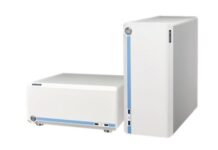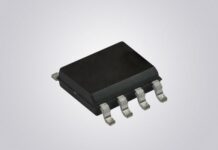At the 2024 CTI Symposium in Berlin, Marelli announces a new pioneering advancement in Battery Management Systems (BMS) for automotive applications, with a BMS based on the Electrochemical Impedance Spectroscopy. This development is set to elevate the standard for battery cell management by ensuring optimal operation and enhanced performance of the battery pack.
The battery management system is an electronic control unit that monitors the state of the cells in a battery pack to ensure their safe operation within specified voltage, current, and temperature ranges. Degradation of lithium-ion batteries results in capacity reduction and increased resistance. The innovative application of Electrochemical Impedance Spectroscopy (EIS) in battery management systems provides insights specifically into the lithium-ion batteries‘ degradation, and related capacity reduction and increased resistance. Such insights are essential for accurately determining the remaining useful life of the batteries and therefore their residual economic value. Traditionally, EIS has been an expensive laboratory tool, but Marelli has developed a cost-effective solution ready for large-scale production, capable of early anomaly detection, thus preventing thermal runaway.
The current generation of “Marelli Energy” BMS platform, known as “EIS ready”, already brought significant improvements related to its ability to measure impedance in lower frequency ranges. Moving from that point, the development of the next-generation “Full EIS” BMS, set for release in 2025, will further enhance capabilities, enabling higher frequency measurements and providing a comprehensive overview of each battery cell’s condition.
Further integrating cutting-edge cloud tracking and AI applications to empower calculation algorithms, the new “Marelli Energy” BMS platform optimizes real-time estimation of the State of Charge (SoC) and State of Power (SoP) of the battery pack, offering a precise evaluation of the battery’s remaining useful life (RUL) and degradation. These advancements bring longer battery life, improved drivability, and extended driving range.
Giovanni Mastrangelo, CTO of Marelli’s Propulsion Solutions business said: “Marelli stands as a true pioneer in the field of innovative applications and cutting-edge BMS technology development, aiming to meet our customers’ needs while presenting them with new opportunities for technological excellence. The adoption of EIS and AI in BMS technology is anticipated to grow substantially in the coming years, enhancing safety, reliability, and performance standards in battery management for electric vehicles.”
Marelli is sharing this new development and its commitment to technological excellence at the CTI Symposium, held in Berlin on December 3 and 4, where Davide Cavaliere, Battery Management Systems Product Manager, is delivering his keynote speech “Electrochemical Impedance Spectroscopy (EIS) implementation in Battery Management Systems (BMS)”. This session provides an in-depth look at the development process, design challenges, and future enhancements of Marelli’s BMS technologies and innovative applications.















